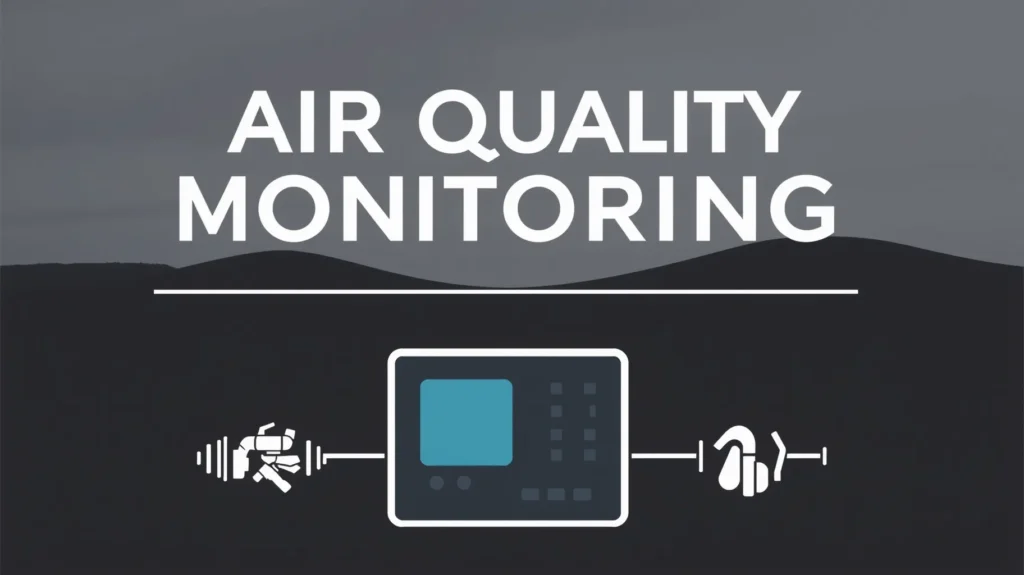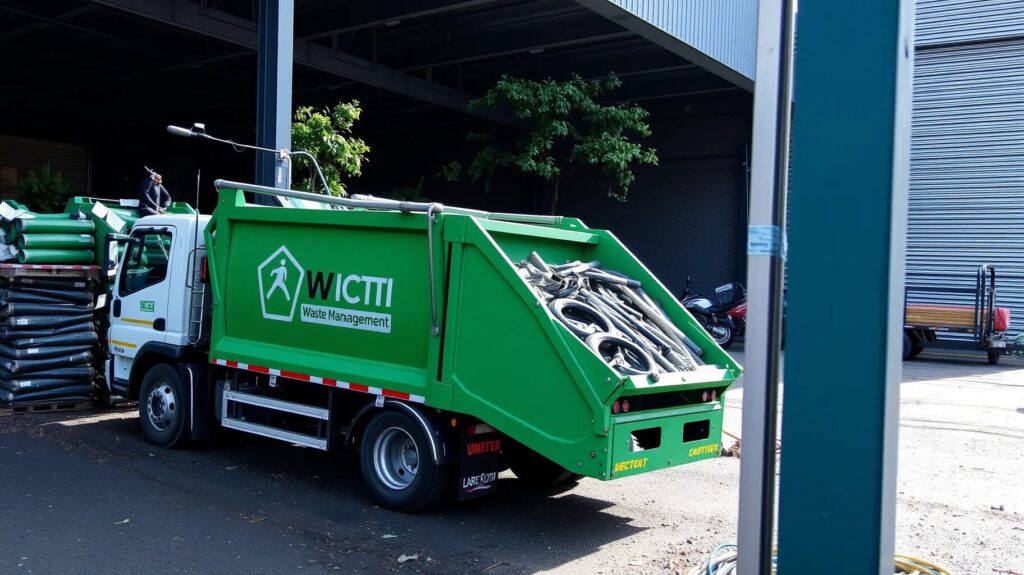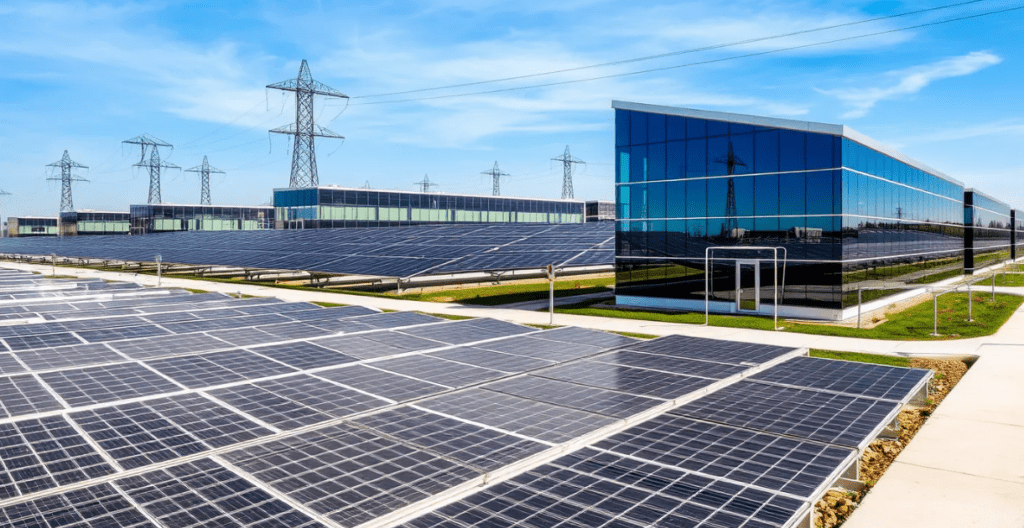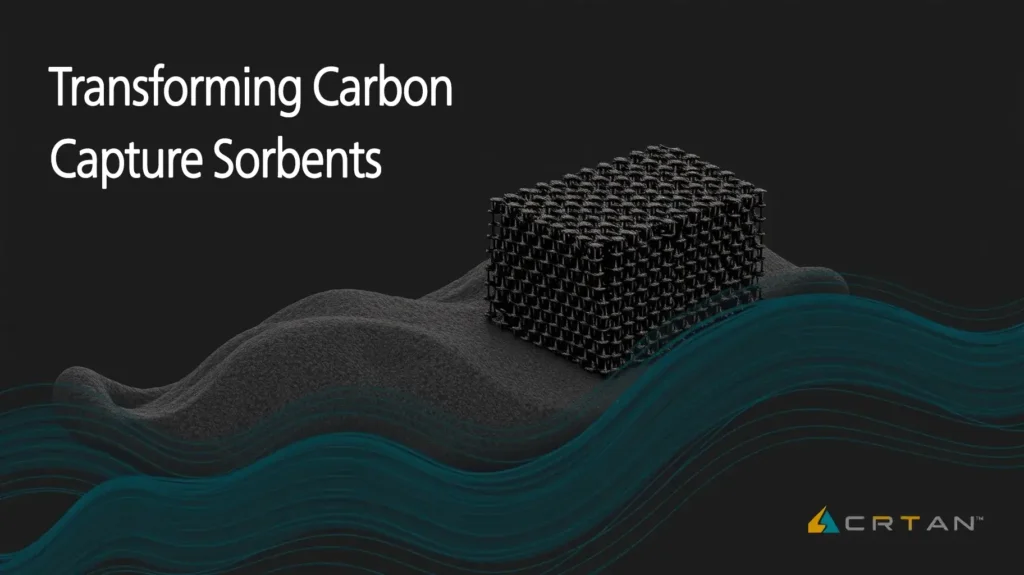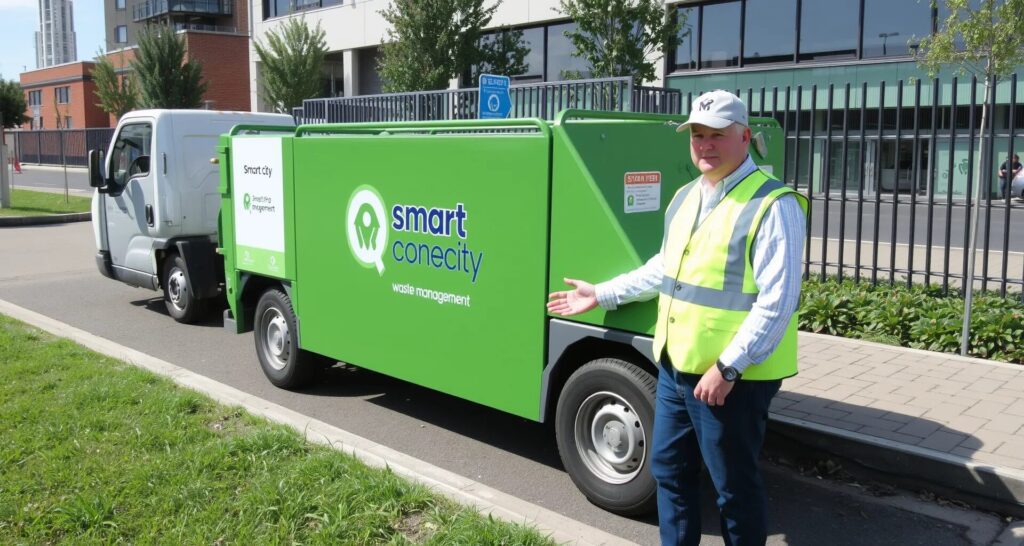
In the ever-evolving urban environments of the 21st century, the concept of smart cities is gaining momentum. One of the most critical aspects of a smart city is its approach to waste management. As cities expand and populations grow, the challenge of effectively managing waste becomes more complex. Smart city waste management offers innovative solutions to these challenges, leveraging technology to create cleaner, more sustainable urban spaces.
The Need for Smart Waste Management
Traditional waste management systems are often inefficient, leading to overflowing garbage bins, missed collection schedules, and increased pollution. In densely populated urban areas, these inefficiencies are magnified, creating serious public health and environmental issues.
Smart city waste management aims to address these challenges by integrating technology into every aspect of the waste management process. From collection to disposal, these systems are designed to be more efficient, reducing costs and minimizing environmental impact.
How Smart Waste Management Works
At the heart of smart waste management are IoT (Internet of Things) devices. These devices are embedded in garbage bins, waste collection vehicles, and even recycling facilities. They collect data on waste levels, bin locations, and collection schedules, which is then transmitted to a central management system.
One of the key technologies used in smart waste management is sensor technology. Sensors installed in garbage bins can detect when the bin is full and send an alert to the waste collection service. This ensures that bins are emptied only when necessary, reducing unnecessary trips and optimizing collection routes. In turn, this decreases fuel consumption and lowers the carbon footprint of waste management operations.
Additionally, smart bins are often equipped with compacting mechanisms that compress waste, increasing the bin’s capacity. This feature is particularly useful in high-traffic areas, where bins can fill up quickly. By reducing the frequency of collection needed, these smart bins contribute to a more efficient waste management process.
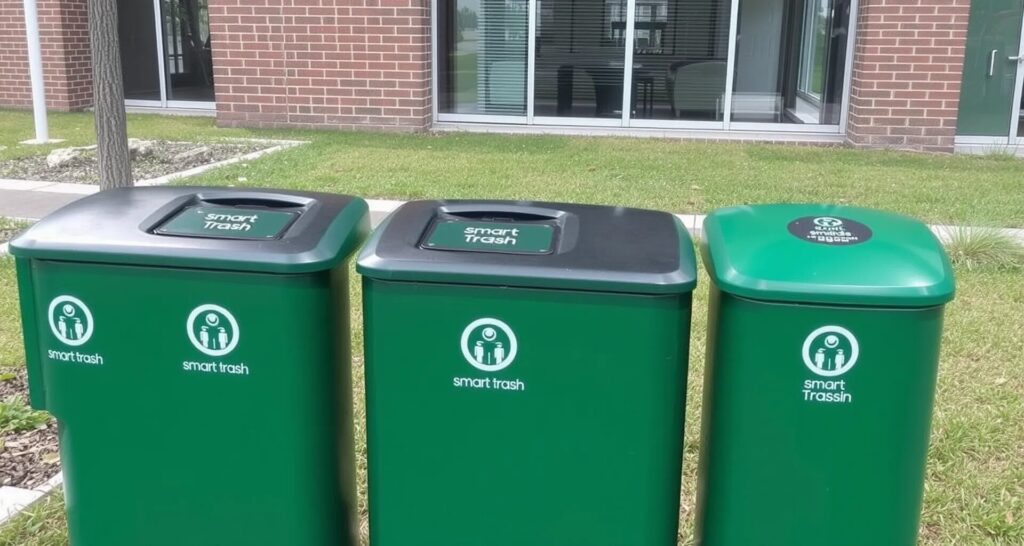
The Rise of Smart Garbage Cans
Smart garbage cans are not just a futuristic concept; they are already here. These AI-powered bins can identify different types of waste, sorting recyclables from organic matter and general trash. This innovation reduces the burden on recycling plants and landfills while increasing the efficiency of waste management systems.
AI in garbage cans uses sensors and machine learning algorithms to analyze waste as it’s deposited. This real-time sorting is critical for improving the recycling rate, which has been stagnant in many parts of the world. By automating this process, AI helps divert more waste away from landfills, contributing to a more sustainable future.
How Do Smart Garbage Cans Work?
The technology behind these intelligent bins is fascinating. They are equipped with cameras, sensors, and AI software that can recognize different materials. When you throw something away, the AI assesses its composition—whether it’s plastic, paper, glass, or organic material. It then directs the waste to the appropriate compartment, ensuring that recyclables don’t end up in landfills.
Some advanced models even have compacting capabilities, reducing the volume of waste and increasing the bin’s capacity. This feature is particularly useful in urban areas where space is limited. Moreover, these bins can communicate with waste collection services, alerting them when they need to be emptied, optimizing collection routes, and reducing fuel consumption.
Data-Driven Decision Making
One of the most significant advantages of smart city waste management is the ability to make data-driven decisions. The data collected from IoT devices is analyzed to identify patterns in waste generation, peak times for bin usage, and areas with the most waste.
This information allows city planners and waste management companies to optimize their operations. For example, they can adjust collection schedules to coincide with peak waste generation times, ensuring that bins are never overflowing. They can also identify areas where waste is not being properly segregated and take steps to improve recycling rates.
Moreover, predictive analytics can be used to forecast future waste management needs based on current trends. This enables cities to plan for growth and ensure that their waste management systems can handle increasing demand.
The Environmental Impact of Smart Waste Management
The environmental benefits of smart waste management are significant. By optimizing collection routes and schedules, cities can reduce the number of vehicles on the road, leading to lower emissions. Additionally, better waste segregation means more materials are recycled, reducing the amount of waste sent to landfills.
Smart waste management systems also support the circular economy by ensuring that recyclable materials are properly sorted and sent back into the production cycle. This reduces the need for virgin materials and helps to conserve natural resources.
Another environmental benefit is the reduction of waste-related pollution. Overflowing garbage bins can attract pests and create unsanitary conditions, which can lead to the spread of disease. By ensuring that bins are emptied regularly and waste is properly contained, smart waste management helps to maintain cleaner, healthier urban environments.
Challenges in Implementing Smart Waste Management
Despite its many advantages, there are challenges associated with implementing smart waste management systems. Cost is a significant barrier, as the technology required for smart waste management can be expensive to install and maintain. This includes the cost of IoT devices, software, and the infrastructure needed to support these systems.
Another challenge is public acceptance. For smart waste management to be effective, residents must be willing to use smart bins correctly and adhere to waste segregation guidelines. This requires ongoing public education and engagement efforts.
Data privacy is also a concern, as the collection of data on waste generation could potentially be used to track individuals’ behavior. Cities must ensure that data collected is used responsibly and that privacy concerns are addressed.
The Future of Smart City Waste Management
As technology continues to advance, the potential for smart city waste management is vast. In the future, we can expect even more sophisticated systems that not only manage waste but also reduce its generation. For example, smart kitchens could provide users with real-time feedback on their waste habits, helping them to reduce food waste and recycle more effectively.
AI and machine learning will play a more significant role in optimizing waste management systems. These technologies can be used to improve the accuracy of waste sorting, predict future waste management needs, and even automate parts of the waste collection process.
Moreover, smart waste management will likely be integrated with other smart city initiatives. For example, smart energy grids could be used to power waste management operations, while smart water systems could be used to clean waste facilities more efficiently.
Conclusion
Smart city waste management is an essential component of creating sustainable urban environments. By leveraging technology, cities can improve the efficiency of their waste management systems, reduce environmental impact, and create cleaner, healthier living spaces. While challenges remain, the potential benefits of smart waste management make it a critical area of focus for future urban development.
Discover more about smart cities and waste management:
- Smart Waste Management: The Future of Clean Cities >>
Here are some journal references that discuss topics related to smart city waste management and the integration of AI and IoT technologies in waste management systems:
- K. Zybała, P. H. Leoński, and M. Ziółkowski, “Smart Waste Management Systems in Smart Cities: A Review,” Sustainability, vol. 13, no. 2, pp. 1-20, 2021. DOI: 10.3390/su13020830.
- F. Tao, Y. Cheng, Q. Zhang, L. Zhong, and J. Qi, “Intelligent Waste Management System Based on the Internet of Things (IoT): A Survey,” IEEE Transactions on Industrial Informatics, vol. 16, no. 6, pp. 3810-3822, 2020. DOI: 10.1109/TII.2019.2945442.
- S. Gharibi, N. Haddad, and M. M. Hammoudeh, “A Comprehensive Review on the Applications of Internet of Things (IoT) for Waste Management,” Journal of Cleaner Production, vol. 274, pp. 1-12, 2020. DOI: 10.1016/j.jclepro.2020.123121.
- M. O. Sarwar, M. Z. Alom, and S. Ahmed, “Smart Waste Management System: A Cloud-Based Approach,” Journal of Environmental Management, vol. 267, pp. 1-11, 2020. DOI: 10.1016/j.jenvman.2020.110651.
- L. M. Korach, D. M. Ganje, and K. H. Nakata, “Smart City Waste Management System: A Case Study on the Impact of IoT on Urban Waste Systems,” Journal of Urban Technology, vol. 27, no. 3, pp. 31-50, 2020. DOI: 10.1080/10630732.2020.1718723.
